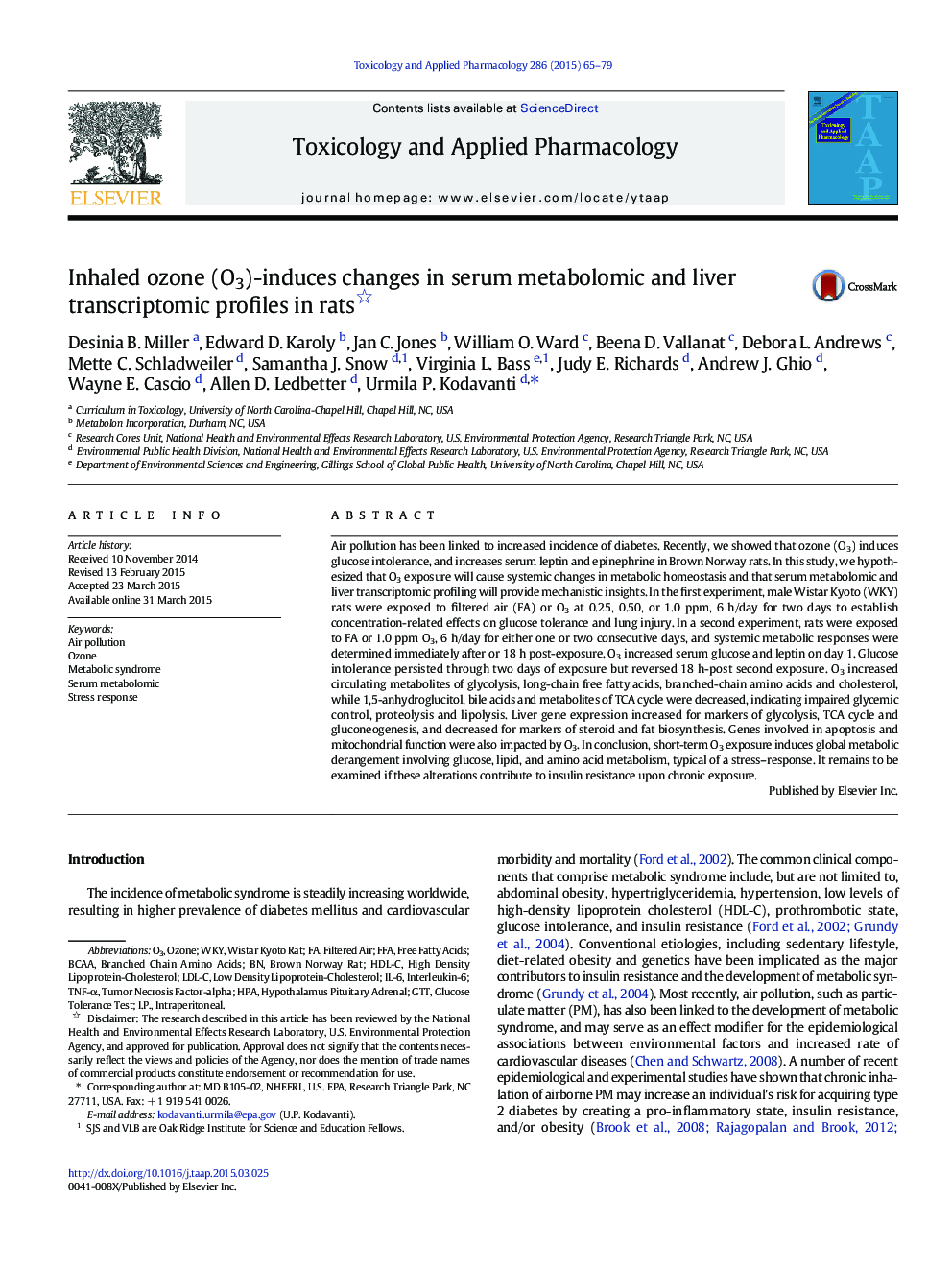| کد مقاله | کد نشریه | سال انتشار | مقاله انگلیسی | نسخه تمام متن |
|---|---|---|---|---|
| 2568370 | 1128441 | 2015 | 15 صفحه PDF | دانلود رایگان |

• Ozone, an ubiquitous air pollutant induces acute systemic metabolic derangement.
• Serum metabolomic approach provides novel insights in ozone-induced changes.
• Ozone exposure induces leptinemia, hyperglycemia, and glucose intolerance.
• Ozone increases serum free fatty acids, branched chain amino acids, cholesterols.
• Ozone metabolic derangement is likely mediated by neuronal stress response pathway.
Air pollution has been linked to increased incidence of diabetes. Recently, we showed that ozone (O3) induces glucose intolerance, and increases serum leptin and epinephrine in Brown Norway rats. In this study, we hypothesized that O3 exposure will cause systemic changes in metabolic homeostasis and that serum metabolomic and liver transcriptomic profiling will provide mechanistic insights. In the first experiment, male Wistar Kyoto (WKY) rats were exposed to filtered air (FA) or O3 at 0.25, 0.50, or 1.0 ppm, 6 h/day for two days to establish concentration-related effects on glucose tolerance and lung injury. In a second experiment, rats were exposed to FA or 1.0 ppm O3, 6 h/day for either one or two consecutive days, and systemic metabolic responses were determined immediately after or 18 h post-exposure. O3 increased serum glucose and leptin on day 1. Glucose intolerance persisted through two days of exposure but reversed 18 h-post second exposure. O3 increased circulating metabolites of glycolysis, long-chain free fatty acids, branched-chain amino acids and cholesterol, while 1,5-anhydroglucitol, bile acids and metabolites of TCA cycle were decreased, indicating impaired glycemic control, proteolysis and lipolysis. Liver gene expression increased for markers of glycolysis, TCA cycle and gluconeogenesis, and decreased for markers of steroid and fat biosynthesis. Genes involved in apoptosis and mitochondrial function were also impacted by O3. In conclusion, short-term O3 exposure induces global metabolic derangement involving glucose, lipid, and amino acid metabolism, typical of a stress–response. It remains to be examined if these alterations contribute to insulin resistance upon chronic exposure.
Journal: Toxicology and Applied Pharmacology - Volume 286, Issue 2, 15 July 2015, Pages 65–79